Today we will be exploring 5 types of tea and their health benefits. Millions of people all over the globe have been enjoying a cup of brew for many centuries. Not only is it a refreshing and quenching drink, but some teas have an immense impact on health. For instance, fighting off inflammation, boosting your immune system, and preventing heart disease and cancer.
While some brews offer more health benefits than others, enough evidence exists that a regular cup of tea can have a lasting impact on your overall wellness. My favorite is Rooibos tea that is indigenous to my home country South Africa. The taste is divine, and I haven’t quite tasted anything else that has the same flavor. Here are 5 types of tea and their health benefits that you may be blissfully unaware of.
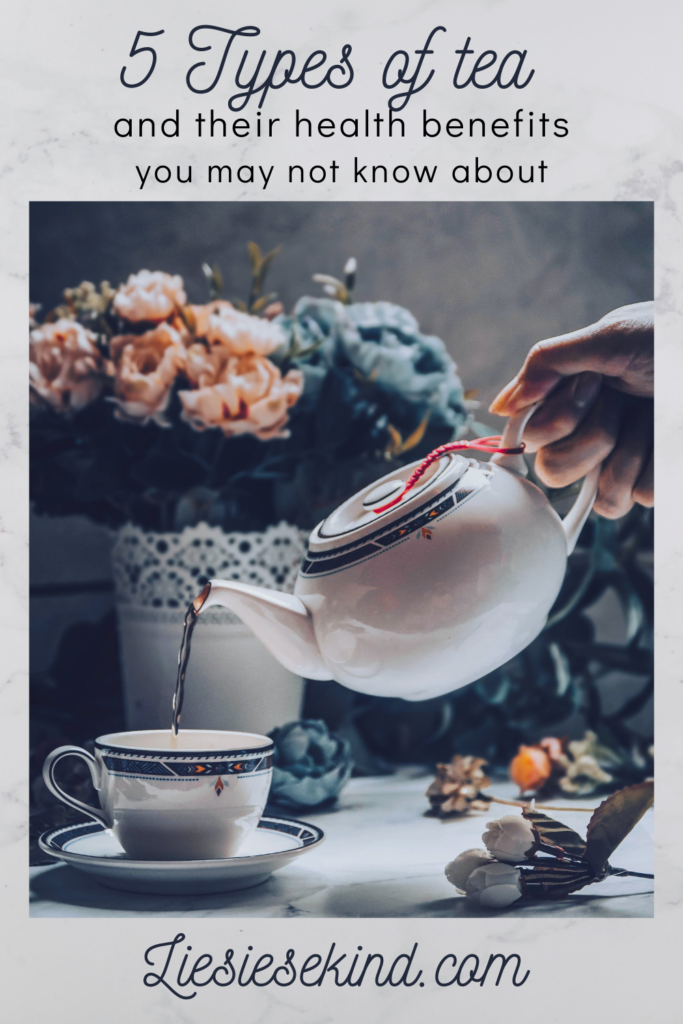
5 Types of tea and their health benefits
White tea
White tea has a unique delicate flavor and originates from the Camellia sinensis plant which is indigenous to India and China. It is also not nearly as processed as other teas. Research reveals that it might be the most effective tea for combatting different forms of cancer, due to its high antioxidant content. White tea is incredibly advantageous for dental health due to the high levels of fluoride, tannins, and catechins that help with strengthening teeth, fighting plaque, and it makes your pearly white more resilient to sugar and acid. It also contains less caffeine which makes it an ideal choice for those who would like to cut down on caffeine consumption.
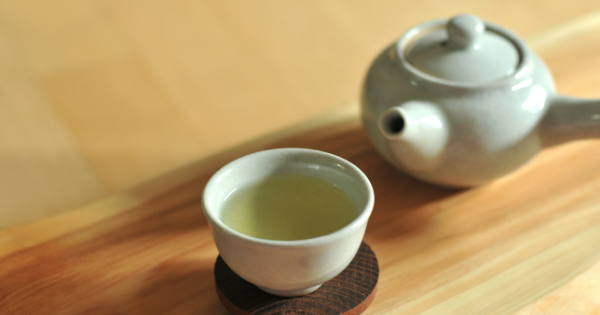
Herbal tea
Herbal teas, also known as tisanes, are similar to white teas, however, they also contain a mix of spices, herbs, or other plants with the tea leaves. Herbal teas do not contain caffeine and are known for their calming effects. There are various types of herbal teas, and each one possesses their individual advantages. The more popular ones are:
- Chamomile tea – assists with reducing muscle spasms and menstrual pains, promotes better relaxation and sleep, and lowers stress levels.
- Rooibos tea – boosts circulation and blood pressure levels, improves good cholesterol while lessening bad cholesterol, keeps skin healthy and hair strong, and offers relief from allergy symptoms.
- Peppermint tea – contains menthol that soothes an upset tummy and also assists with aiding irritable bowel syndrome, constipation, and motion sickness. This type of tea also provides pain relief as a result from migraines and tension headaches.
- Ginger tea – assists with fighting morning sickness, can be consumed to treat chronic indigestion, and assists with providing relief for joint pain from osteoarthritis.
- Hibiscus tea – helps with lowering fat levels and high blood pressure, boosts overall liver health, can help with the prevention of cravings for unhealthy sweets, and can prevent kidney stones from forming.
Green tea
You must have heard about the range of health benefits that green tea offers before. This tea comes from China and is processed with heat by means of pan-frying or roasting. In Japan, it is steamed. Green tea contains flavonoids that are good for a healthy heart since it lowers bad cholesterol levels and blood clotting. This type of tea also assists with lowering triglycerides, blood pressure, and cholesterol.
Research also reveals green tea might have a positive impact on breast, colorectal, liver, and prostate cancers. You can also enjoy healthy glowing skin due to the anti-inflammatory components found in green tea. Matcha, a type of green tea has gained immense popularity in recent years. It is a superior-quality, very fine green tea powder that is made with whole leaves of tea bushes that are grown in shade. Since this is the only type of tea where leaves are ingested, matcha contains high levels of antioxidants, even more than regular green tea. One cup of matcha equals ten cups of normal green tea.
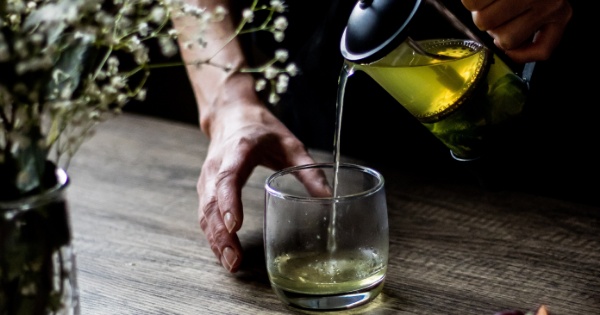
Black tea
The leaves of the Camellia sinensis plant is used for making black tea which is the exact plant that is utilized for making green tea. But, in this instance, the leaves are dried and fermented, giving the tea a richer flavor and darker appearance. Unlike other tea varieties, black tea contains caffeine, therefore, you should limit your intake. A cup of black tea contains flavonoids that fight off inflammation and promote a healthy immune system.
Black tea is not just a beneficial beverage for health reasons. You can also steam and cool it, and then press it on scrapes, minor cuts, and bruises for pain relief and to reduce swelling. A black tea bath is also useful for easing inflammation that is caused by skin rash or conditions like poison ivy contact.
RELATED: Herbex Eat Less Herbal Review
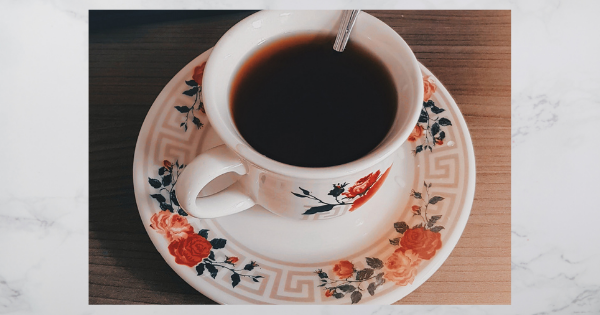
Oolong tea
Oolong tea is a familiar traditional Chinese tea that is also made with the Camellia sinensis plant, however, it is processed in a different way. Green tea should not be oxidized much, whereas black tea must be left to oxidize until it has a black color. Oolong tea falls in between the two and is partially oxidized. This partial oxidation is the reason for the unique taste and color of oolong tea.
Oolong tea contains l-theanine which is an amino acid that lowers anxiety and elevates attention and alertness. L-theanine can also help with the prevention of cognitive diseases like Alzheimer’s disease, and Parkinson’s. Oolong also contains high levels of polyphenols which are associated with lessening inflammation, prevention of cancer growth, and lowering the risk of developing type 2 diabetes.
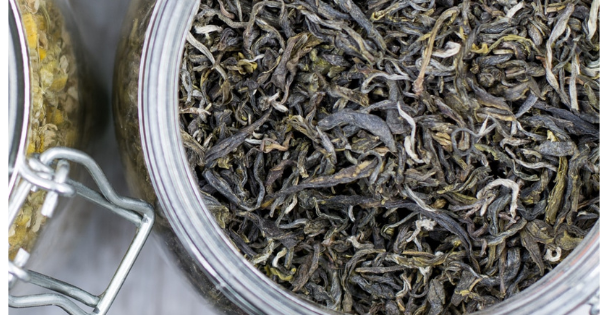
Which teas are not good for you?
While most teas are advantageous for health, there are some tea varieties that are best avoided.
- Detox teas are associated with fad diets which promote rapid weight loss since they are packed with laxatives that are not beneficial to your health.
- Fancy tea drinks or lattes from chain stores, such as green tea lattes, that seem to be healthy but are actually loaded with sugar.
- Popular bubble teas contain high levels of carbs, calories, and sugars with very little nutritional value.
- Herbal teas that might trigger allergies, a lot of herbal teas contain herbs, fruits, flowers, and spices that some individuals are allergic to. If you suffer from allergies, it’s best to read the ingredient list on the package first before trying a new herbal tea that you haven’t consumed before.
Conclusion
I hope you have found this post about 5 different types of tea and their health benefits just as interesting as I did and that you would be adventurous to try some of them to start reaping the various advantages that it could have on your overall well-being.
Which tea is your favorite? Be sure to connect with me and leave a comment.

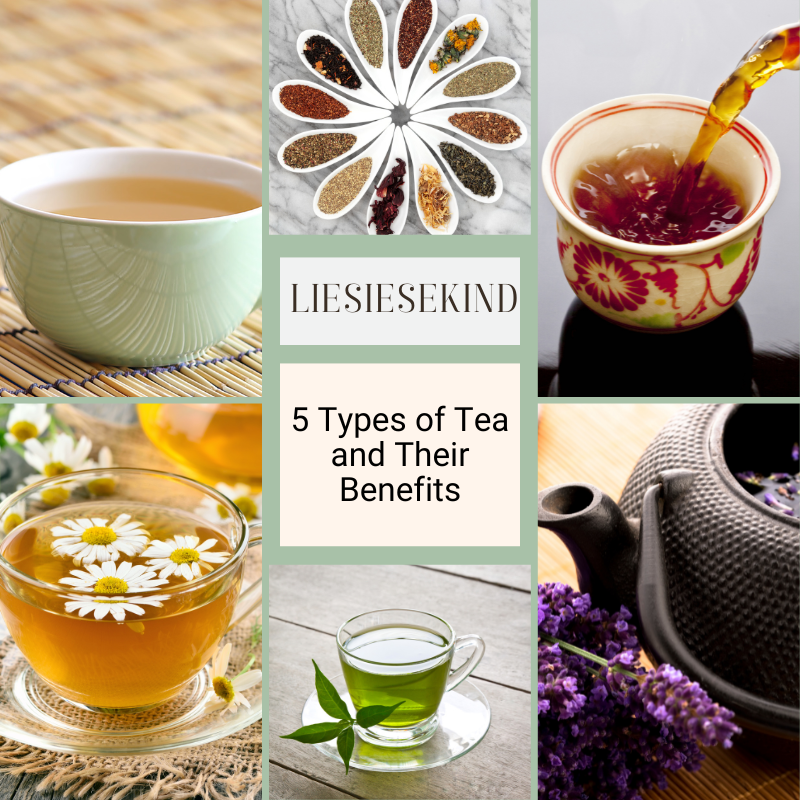
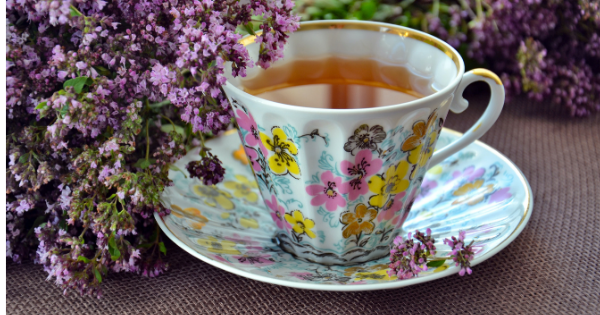



Be the first to reply